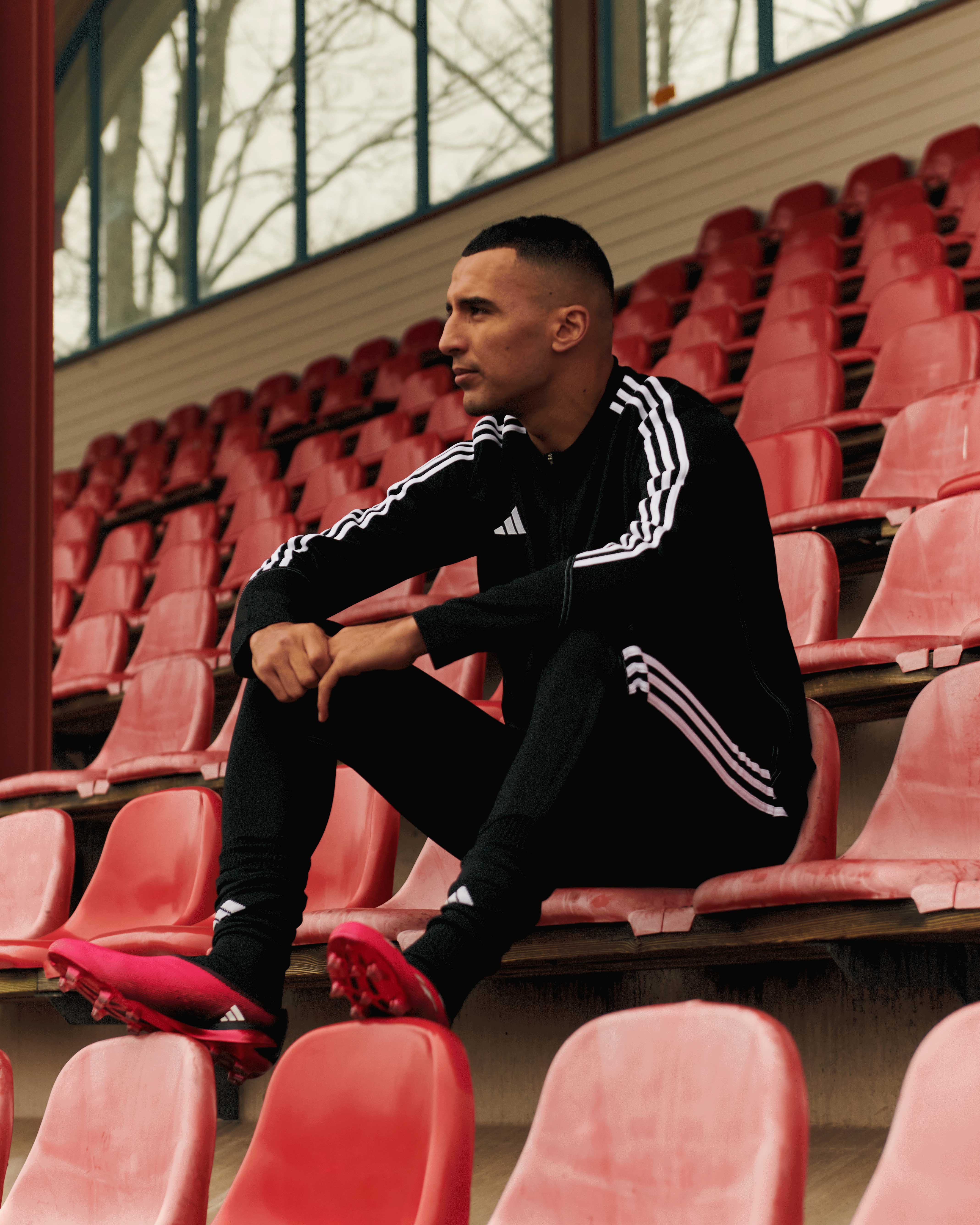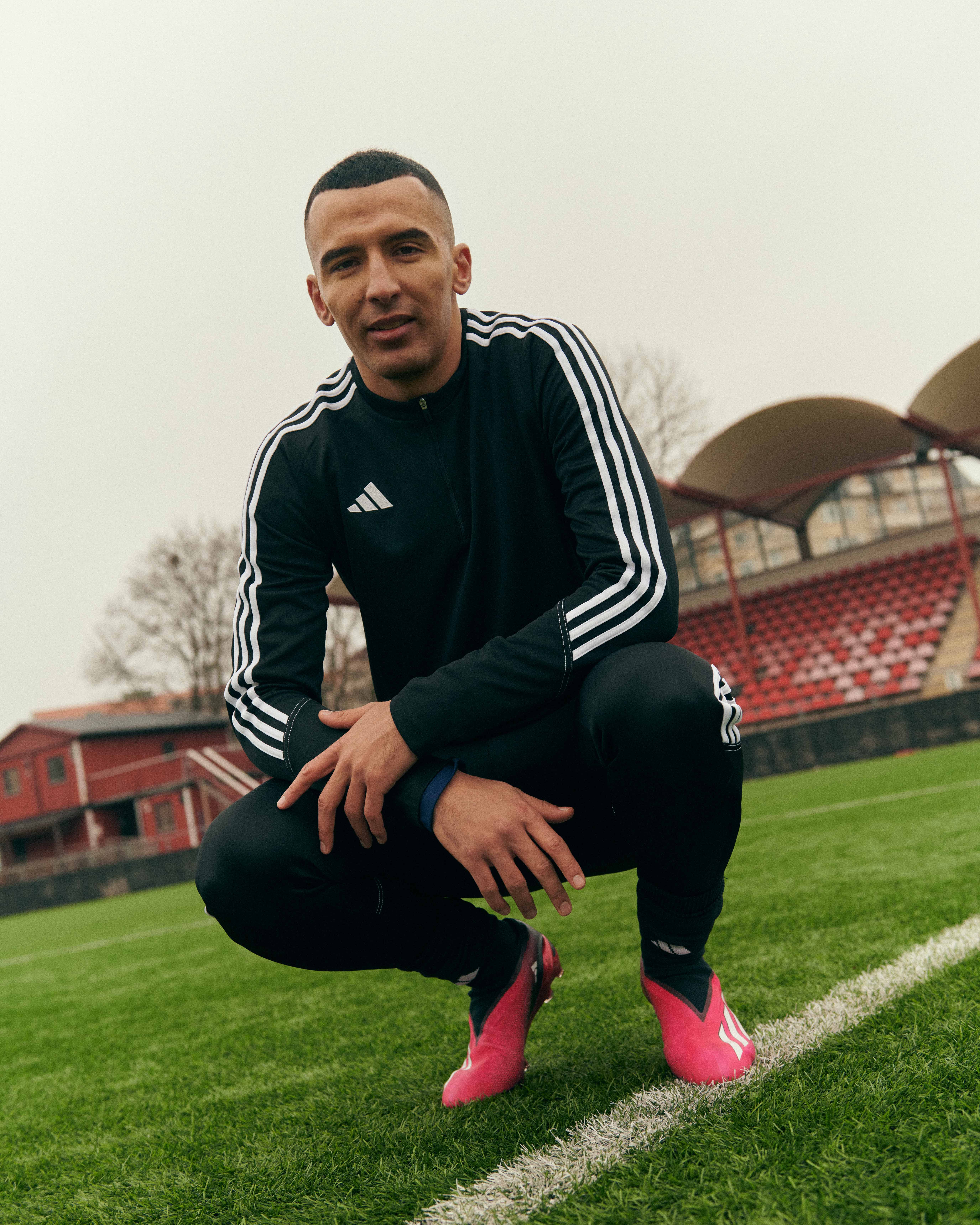NABIL BAHOUI
When footballer Nabil Bahoui is asked about his views on training and fasting during Ramadan, the answer is simple: for him, it’s not even a choice. It’s always been obvious that he would train during Ramadan and, after many years as a professional, it’s now completely natural for him. He says that, from time to time, many people talk about research regarding fasting and training and what is or isn’t good – but for Nabil it’s not at all complicated. If you include the soul in the equation, nothing else matters.
Long before he turned professional, however, it all started in the Gulddragaren housing association. That’s where his interest in football was awakened. And that’s where the famous nickname Nabil Guldish comes from. At that time, he and his friends played football at every opportunity, and when he travelled to his parents’ home country of Morocco during the summer holidays, he would play football on the streets until the sun went down. His feel for the ball followed him home and then on to the club Mälarhöjden, where his career started. A year or so later he moved to Hammarby, followed by Tellus, before he was scouted and recruited by Brommapojkarna.

He made a real impression after joining Brommapojkarna, quickly making his way up to the first team and then breaking through as a 17-year-old. His years at Brommapojkarna were really tough, however. He was at his peak, but still didn’t get to play. In his final season at the club, however, he scored 10–15 goals and showed what a good footballer he really was. Since then, his career has really come along. He was recruited by AIK and made a great impression within Football Sweden, which led to him playing several internationals for the men’s team. His time at AIK was followed by a few twists and turns overseas – in Qatar, Germany and Switzerland – before he ended up back at AIK and contributed to the club winning the Swedish league in 2018. He now plays for Qatar SC and is living his childhood dream.
From a young age, Nabil was taught that Ramadan is a major part of his religion, so fasting and training at the same time is something he has been doing for many years. He explains that he found it more difficult as a child, because he was not as mentally ready at that time. But with his parents by his side, who helped him in terms of how to think about diet and training, things have become much easier over the years. Today is a day in Ramadan just like any other.

Is it the case that you can even feel better during Ramadan?
"Yes, definitely. For me, it’s just like a normal day. You feel better on some days, and worse on others. But it’s certainly true that I can feel lighter in my body during certain matches. One major difference, however, is that I often feel much happier and more positive during Ramadan. The month is so much more than just fasting, as we are trying to be a better person on many different levels. I think this makes you mentally much stronger,” says Nabil.
This is also something he wishes more people out there were aware of – that fasting is only a small part of Ramadan. The month is much more than that. He explains that he is often questioned about the month, and that these questions always relate to the fasting aspect. For Nabil, Ramadan is the best month of the year. He believes that if more people understood that, he wouldn’t get as many questions about why he fasts.
But how do you approach fasting and training? Do you have a special routine?
“I mainly think about my diet, about how and what I eat. When the sun goes down and you are able to eat, it’s important not to eat a large meal straight away. Instead, I start with something lighter, maybe a date or some soup, and drinking plenty of water. Dividing up the meals into smaller components means that my body is better able to absorb the energy, and doesn’t feel heavy,” says Nabil.
“When it comes to training, it’s important to have a dialogue with your coach or club. It’s not always possible to change the structure or move training times, but if I was able to choose, I would train in the afternoons just before the sun goes down. Just before Iftar. Because then I can replenish my energy immediately after training,” he continues.
And if someone is struggling with fasting and training during Ramadan – what should they bear in mind?
“The mental preparation. It’s important to be ready mentally,” he says.
We continue talking about coaches and the role of the club, and how his coach handled the situation. Nabil explains that he has always conducted a dialogue with the clubs he has been at, and feels that some have taken the matter into account, while others have not. He has been in contact with various fitness coaches over the years, who have helped him both with his training and his diet, and states that it is (obviously) very positive if the coaches are aware and take his fasting into account. He also adds that there can be differences between different regions. In the Middle East, for example, society adapts in a totally different way, and you therefore train later in the afternoon there. In Sweden, this is not the case.
Finally, we talk about Nabil’s best memories of Ramadan, and he tells us that he has many. The thing he remembers most is actually the wonderful sense of community that always occurs during this period. Family and friends gather, socialise and have pleasant dinners together. And this sense of community also makes it easier to cope with fasting and training. You’re not alone – there are millions of people around the world doing this together.
Follow Nabil on Instagram, @nabilguildish
